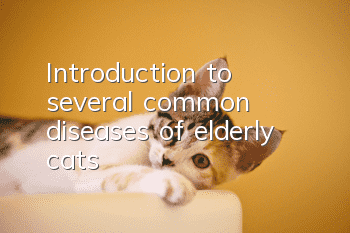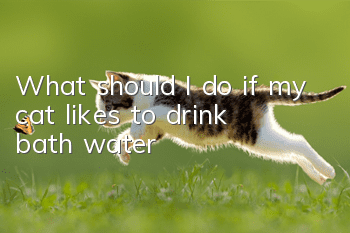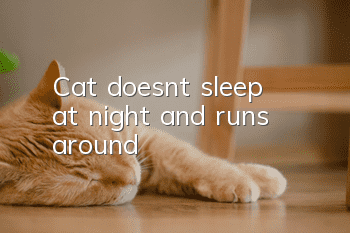Introduction to several common diseases of elderly cats

Common diseases of elderly cats:
1. Due to the decrease in body metabolism and the decrease in the body’s nutrient absorption capacity, elderly cats will have hyperthyroidism. It will affect the health of elderly cats.
2. Renal failure is a common disease in aging cats. There is no distinction between gender and breed. It ranges from drinking more and eating less, fatigue, to weight loss, not eating, and vomiting.
3. When dental calculus and gingivitis occur, salivation is the most common first, food intake gradually decreases, people want to eat but do not open their mouth, gradually lose weight, and have obvious bad breath.
4. Obesity is the most common nutritional disease in elderly cats, because the eating habits of cats have become quite fixed in old age.
Preventive measures for common diseases in elderly cats:
1. Hyperthyroidism. Cats suffering from this disease, because the thyroid gland secretes too much hormone, causes the cat to gradually lose weight even if it eats a lot every day, and is accompanied by symptoms of fast heartbeat, irregular heartbeat, vomiting, and diarrhea. If diagnosed, it can be diagnosed through Blood tests and treatment usually include medication to control hormone secretion or surgery to remove the abnormally enlarged thyroid gland.
2. Chronic renal failure. Renal failure is a common disease in elderly cats, with no distinction between gender and breed. It ranges from drinking more and eating less, and fatigue to weight loss, not eating, vomiting, even convulsions, and death. And because cats are carnivores, the incidence of kidney failure in cats is much higher than that of other animals. Parents should pay attention to the status of their cats. Especially when cats reach old age, they need careful care from parents. If problems are discovered and treated in time, cats can stay with us longer.
3. Oral diseases. The most common ones are dental calculus and gingivitis, which are caused by eating soft food for a long time or not paying attention to oral hygiene. The main symptoms are salivation. The amount of food eaten gradually decreased, sometimes I wanted to eat but could not open my mouth, my body gradually became thinner, and my breath smelled bad. We can usually do some basic prevention, adjust daily diet to reduce or alleviate the occurrence of dental calculus, and at the same time, we can cultivate the habit of brushing teeth in cats from an early age.
4. Obesity. Obesity is the most common nutritional disease in elderly cats. Since cats’ eating habits are quite fixed in their old age, the nutritional supply is still stable. However, lack of exercise in old age will lead to overnutrition, and elderly cats are prone to obesity. Some can even cause fatty liver disease. Therefore, it is better to give small amounts of palatable food. If your cat is obese, you can also give it some liver-protecting and weight-control products, such as bile acids, which can not only reduce the animal's body fat, but also protect the liver and prevent the occurrence of fatty liver, hepatitis and other diseases.
- How many months can a cat take a bath?
- Why does a cat stick out a small part of its tongue and not retract it?
- How do you judge the appearance of Garfield cat?
- Can cats eat dried fish? What are the taboos for cats eating dried fish?
- What should I do if my cat is too timid? How can I improve my cat’s courage?
- Why do cats like to bite things?
- Introduction to the causes of oral ulcers in cats
- What level of protection is the prairie spotted cat?
- Why does the blue cat’s hair turn yellow?
- What are the signs that a cat is pregnant and about to give birth?



